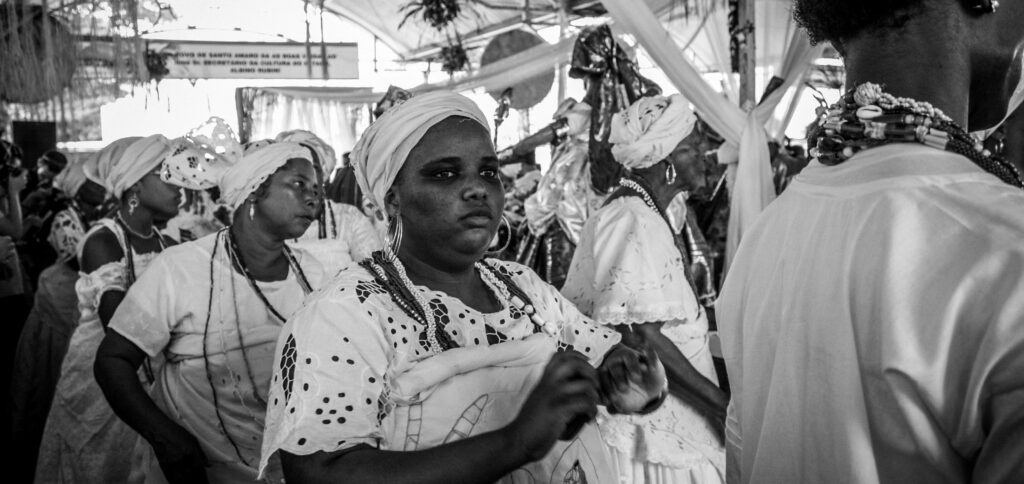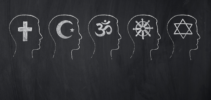It all started when three white participants on the show Big Brother Brazil, from TV Globo, they were terrified to see their black colleague Fred Nicacio praying, before going to sleep and in silence, the prayers of the Ifá cult. One of them warned that he would abandon the reality show if Nicácio insisted on prayers.
ADVERTISING
Immediately, on social media, the attitude was reported as religious racism. But do you know what that means?
What is religious racism?
This is an attack on black people for the simple fact that they follow Umbanda, the cult of Ifá or any other Afro-Brazilian religion, such as Candomblé, Batuque, Enchantment, Jurema, Nagô-Vodun, Tambourine de Mina , the terecó, the xangô and the shambá.
Violence can materialize in even more explicit and cruel ways. It is not uncommon for people to be insulted and attacked in the street, or terreiros to be closed due to neighborhood hostility, expelled from favelas by the rifles of drug traffickers or militiamen and even reduced to ashes by arson.
ADVERTISING
O religious racism will continue to feature in the news in the coming days, the day March 21st became, by force of law (14.519 Law), on the National Day of Traditions of African Roots and Candomblé Nations. The idea is that the commemorative date encourages debates, clarifications and solution proposals every year.
Researchers who focus on the religious racism explain that it is one of the tentacles of structural racism, the complex political, economic and social mechanism that makes black Brazilians a minority in terms of power, despite being the numerical majority (56% of the national population).
It is due to structural racism that this group has the lowest income, occupies the worst jobs, holds few political positions, is the biggest victim of violence, occupies a large proportion of prison spaces, has less education, lives in the poorest neighborhoods. precarious, die earlier, etc.
ADVERTISING
But how does calling someone pejoratively a “macumbeiro” or acting subtly or explicitly to make their religion disappear help trap black people as a whole in the lowest rungs of society? To respond, the babalorixá (pai of saint) Sidnei Barreto Nogueira, doctor in linguistics and semiotics and finalist for the Jabuti Prize with the book Religious intolerance (Editora Jandaíra), uses the history of Brazil:
"The origins of racism lie in the colonial period. To justify the enslavement and forced transfer of Africans to Brazil, Europeans created a hierarchy in the world. Everything that characterized black people would be inferior, from skin color to social organization, from behavior to cultural production. It was a deliberate way of dehumanizing them, objectifying them. Being lowly things, blacks could be enslaved at will, without whites bearing the burden of guilt. As part of this process, beliefs were also hierarchized. The religion of black people, therefore, would be nothing more than magic, superstition, idolatry, witchcraft“He explained.
According to Nogueira, the religious syncretism typical of enslaved people was not something natural. It was, in reality, a cultural survival strategy. They decided to insert elements of Catholic belief into African religions so as not to be repressed and, at the same time, maintain something of their ancestral cultures. That's why the Umbanda and Candomblé, although they have numerous African characteristics, do not exist in Africa.
ADVERTISING
The babalorixá explains that the Lei Áurea, of 1888, ended the separation of Brazil between masters and slaves, but it was not enough to eliminate racial hierarchy:
"Structural racism has adapted to new times. Black people continued to be treated as non-human and supported what is now known as “white privilege”. They freed themselves from shackles, but not from exploitation. It is for this reason that many people, deliberately or unconsciously, see African-based religions as inferior to hegemonic religions. This is what explains religious racism today“He concluded.
(With Agência Senado)
Read also
* The text of this article was partially generated by artificial intelligence tools, state-of-the-art language models that assist in the preparation, review, translation and summarization of texts. Text entries were created by the Curto News and responses from AI tools were used to improve the final content.
It is important to highlight that AI tools are just tools, and the final responsibility for the published content lies with the Curto News. By using these tools responsibly and ethically, our objective is to expand communication possibilities and democratize access to quality information. 🤖
ADVERTISING





